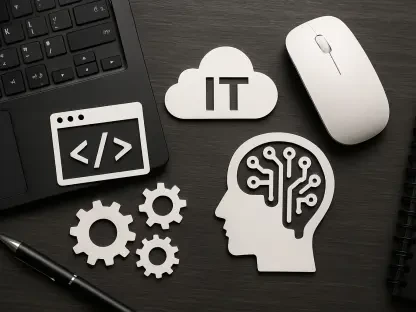In the fast-evolving world of legal technology, few understand the intricacies as well as Desiree Sainthrope. With a career steeped in expertise across global compliance and trade agreements, Desiree discusses the pivotal role technology plays in shaping the future of legal processes. Her keen insights into intellectual property and AI’s potential in the legal sector offer a rich perspective. In today’s interview, we delve into her perspectives on leveraging technology and innovative strategies that are propelling legal fields forward.
What first attracted you to the field of legal technology, and how did your journey in this area begin?
My journey in legal technology began with a fascination for how emerging tools could streamline the notoriously complex processes involved in legal practice. I was drawn to the potential of technology to break down barriers in global compliance and facilitate smoother international trade. Over time, the realization of technology’s impact on efficiency and accuracy captivated me more deeply, especially as I saw firsthand the challenges that traditional legal systems faced. This field offers a unique blend of my interests in law, innovation, and problem-solving on a global scale.
Given your extensive experience, how do you see AI transforming the legal landscape in the coming years?
AI’s potential within the legal field is immense. It’s more than just facilitating document review or contract management; it’s about reimagining how we handle legal processes end-to-end. In the near future, I see AI becoming integral in predictive analytics, advising not just on what has happened, but what could happen. This proactive element will redefine risk management and legal strategy. Tools that used to be reactive will become anticipatory, helping firms and clients strategize with unprecedented insight.
What recent innovations or trends in legal technology excite you the most?
I am particularly excited about the advancements in machine learning and natural language processing. These innovations are ushering in an era where technology can interpret and contextualize legal jargon with human-like understanding. This not only reduces the time spent on mundane tasks but also enhances accuracy and decision-making capacity. Moreover, blockchain technology’s application in securing and verifying legal transactions promises increased transparency and trust in the sector.
With technology reshaping legal processes, what role do you believe legal professionals will play in this new landscape?
Legal professionals will need to evolve alongside technology. While technology can handle many tasks, the demand for nuanced judgment, ethical considerations, and human empathy remains irreplaceable. Legal professionals must become more tech-savvy, understanding not just how to use these tools, but when and why to use them. Their role will increasingly focus on strategic oversight, guiding AI systems, and interpreting their outputs for complex decision-making.
How do you balance introducing technology innovations with maintaining the core values and ethics in legal practice?
Balancing technology with core legal values is crucial. At the heart of this is ensuring transparency and accountability in every technological solution adopted. This involves educating both clients and legal practitioners about the limitations of technology and preserving the human oversight that upholds ethical standards. Equally important is designing AI systems that are unbiased and fair, coupled with continuous oversight and adaptability to these systems as they evolve.
In what ways do you foster innovation and creativity within the teams you lead?
Fostering innovation requires creating an environment where ideas can flow freely. I encourage open dialogue, collaboration across disciplines, and not being afraid to take calculated risks. An important aspect is building a diverse team that brings different perspectives and experiences, which often leads to more creative solutions. Continuous learning and staying updated with industry trends also help fuel innovation and keep the team motivated.
Looking at the current landscape, are there specific industries where you believe legal tech solutions are underutilized?
Absolutely, there are several industries where legal tech solutions are still emerging but have great potential. The healthcare sector, for instance, could significantly benefit from legal tech advancements in managing patient data privacy and compliance efficiently. Additionally, industries like real estate and education could use innovative solutions to handle vast administrative demands with greater efficiency and security.
What is your forecast for the future of legal technology, and how does Ironclad fit into that vision?
The future of legal technology is incredibly promising, with AI and machine learning leading the charge in redefining how legal services are delivered. I foresee a landscape where legal services are more accessible, faster, and tailored to individual needs. In this future, Ironclad will likely play a pivotal role by continuing to leverage cutting-edge technology to refine contract management and lifecycle processes, ensuring they are adaptable, intuitive, and far ahead of the competition.









